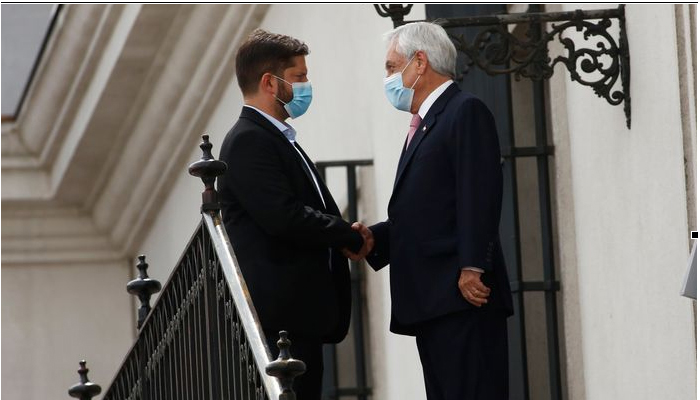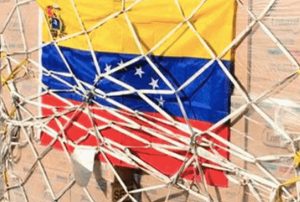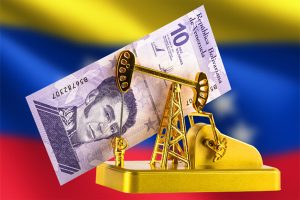
the presidential palace in Santiago on Monday. / Photo credits: Marcelo Hernandez /Getty
By Ryan Dube / WSJ
SANTIAGO
Petroleumworld 12 22 2021
The election of a leftist politician as president in Chile caused markets to tumble on Monday as investors fear an economic overhaul in Latin America’s most successful model of free market orthodoxy and the home to the world’s biggest copper mines.
After former protest leader Gabriel Boric scored a landslide victory in Chile Sunday, investors worry that he will embark on an ambitious transformation of a business-friendly country that has long been a magnet for foreign investment. Influential leftists in his coalition, as well as young voters who overwhelmingly backed him, have long supported Mr. Boric’s initial proposals for a major revamp of Chile’s economic system.
“The size of his victory makes it more likely that he’ll be more accommodating to his base,” said Juan Nagel, an economist at the University of Los Andes in Santiago. “He has made some really bold proposals that will be difficult to get away from.”
In the weeks leading to the election, Mr. Boric, a 35-year-old congressman, had presented another side, toning down his earlier calls for a radical economic overhaul. He veered toward the political center in this country of 19 million, allowing him to handily beat conservative lawyer José Antonio Kast with 56% of the vote.
But Mr. Boric is likely to have a short-lived honeymoon as he navigates competing political forces—the more leftist Chileans who had always supported him versus more centrist voters who broke for him late in the campaign. A failure to moderate could heighten the investor fears that on Monday led to a selloff of the peso, which would further increase inflation that is already at a 10-year high.
By the close of trading in Chile on Monday, the peso had fallen 3.5% against the U.S. dollar, hitting an all-time low. Santiago’s stock exchange tumbled 6%.
Mining companies that operate in Chile fell sharply amid investor concerns Mr. Boric will raise taxes and curb development of new projects as he strengthens environmental protections. Lundin Mining Corp. tumbled nearly 17% on the Toronto stock exchange, while Antofagasta was down more than 5% in London.
If he decides to govern from the political center, however, Mr. Boric could be hamstrung by a special assembly led by leftists who are currently drafting a new constitution. If approved in a referendum next year, the new document could require the government to abandon fiscal discipline while raising public spending or dismantling some of the pillars of the market economy, analysts say.
“He’s in somewhat of a straitjacket,” said Patricio Navia, a Chilean political scientist at New York University.
For now, Mr. Boric is celebrating his 12-point win over Mr. Kast, who had staunchly defended the economic status quo. On Twitter and in his victory speech Sunday, Mr. Boric thanked Chileans and expressed that he had a mandate to carry out his proposals.
In his victory speech before a fervent crowd in a vast plaza in the capital, Mr. Boric promised important changes, but carried out with care to “safeguard democracy.”
He said he would lead an inclusive gender-balanced administration that will respect fiscal discipline and promote economic growth. But he also singled out the Dominga iron-ore mine project, saying it would not go ahead as a result of environmental concerns, despite its economic benefits.
“We don’t want more projects that destroy Chile,” he said.
In the speech, Mr. Boric took aim at a private pension system that has been a bedrock of capital markets here but that is criticized by many Chileans for providing paltry pensions and for generating big profits for fund managers. That system will be dismantled in favor of a public model.
“We don’t want them to continue doing business with our pensions,” he said to applause.
Mr. Boric early in his campaign spoke about forcing corporations to appoint an equal number of workers and shareholders to their governing boards. And in stump speeches and interviews, he called for ramping up taxes on mining companies with copper prices at record highs and creating a state lithium firm.
“We have come with a plan that can be summarized in a few and simple words: Advance with responsibility in the structural changes that Chile has been demanding,” Mr. Boric said in his speech.
Investors would welcome both a move to the center by the new president and less volatility in the streets, which exploded in violent protests in 2019. Mr. Boric pledges to improve social services and cut transport fees, among the proposals people who protested had been demanding.
Too moderate a course could lead to a backlash from far-left activists—including members of the Communist Party who are part of Mr. Boric’s ruling coalition—who say they will maintain pressure on the new government.
Guillermo Gonzalez, a self-described Marxist-Leninist, labels Mr. Boric a social democrat and worries he will fail to listen to protesters who want far-reaching changes.
“He must respond to the changes that the streets are demanding,” said Mr. Gonzalez, whose far-left Equality Party is aligned with Mr. Boric’s coalition in the assembly drafting the constitution. “We want Boric to succeed, but we are not going to be passive.”
A divided congress could water down many of Mr. Boric’s overhaul, as he will be required to negotiate with center-right and conservative opponents. But political analysts say the approval of a new constitution could result in new congressional elections, possibly changing the balance of power in the legislature in the new president’s favor.
“The fact that the constitution convention is still doing its job is going to make him a bit more cautious,” said Mr. Nagel, the economist. “But I think once the constitution gets approved, we’ll see a much more bold proposal from him.”
Felipe Galaz, a 23-year-old chef and supporter of the president-elect, is upbeat. He doesn’t expect Mr. Boric to fulfill all of his campaign promises. But if he delivers on a better pension system and a minimum-wage increase, Mr. Galaz said he will be pleased.
“The coming years are going to be a lot better,” he said.
Rodrigo Pérez, who was a leader in high school of the 2019 protests and now a law student, said that the country has been “hungry for changes” ever since Chileans hit the streets.
Although he sees Mr. Boric as a “liberal, a social democrat who gives social stability to the country,” Mr. Pérez said he expected “a redistribution of power away from the president in favor of direct democracy.”
—Patricia Garip contributed to this article.
By Ryan Dube from The Wall Street Journal-WSJ
Write to Ryan Dube at ryan.dube@dowjones.com
wsj.com 12 20 2021








